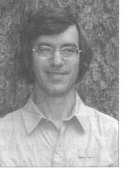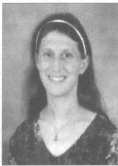It was over ten years ago that we wrote of our thoughts on “taking the road less traveled” of a vocational calling in the sciences, and particularly within the secular academy.1 We have been asked to reflect again on our experience in staying on that road. The perspective that we emphasized then, and continue to see as foundational, is that of understanding our work as scientists/engineers as an inseparable part of Christian stewardship. We see stewardship as more than just a responsibility to use our resources wisely—we see it as a worldview that encompasses all of life.
What do we mean by worldview? As described by Brian Walsh and Richard Middleton,
A worldview is never merely a vision of life. It is always a vision for life as well. Indeed, a vision of life, or worldview that does not actually lead a person or a people in a particular way of life is no worldview at all. Our worldview determines our values. It helps us interpret the world around us. It sorts out what is important from what is not, what is of highest value from what is least.2
A worldview is both individual and shared within a community. The idea of stewardship is such a worldview.
Stewardship is rooted first in the Christian confession that God is the Creator, Sustainer, and Ruler of all things. The earth and all things in it are God’s creation and possession. All things were and are created by God and for God. We can claim ownership and ultimate authority over nothing. Secondly, we were created to be God’s image-bearers. As image-bearers we have been given a commission to have dominion over God’s creation. However, the focus of that dominion is on actively imaging God in creation, of exercising God’s rule, not ours.3 This is a call to stewardship, not self-interested exploitation. We are called to be conformed to the image of God, and then to image that God to others and to the rest of the nonhuman creation. As Christ is the fullest expression of the image of God, our model for dominion is that of self-sacrificing servant lordship.
Our servant lordship is all encompassing and touches on all aspects of our lives. The Deuteronomic command is to love God with heart, soul, mind, and strength. That command can be seen to include what we feel (e.g., arts, aesthetics, relationships, worship), what we think (e.g., philosophy, theology, history, science), and what we do (e.g., technology, work, finances, social action, spiritual disciplines). This comprehensive claim should destroy any sacred- secular dichotomy in our lives. All of our talents and abilities are to be used for God’s glory whether in the secular academy or in Sunday worship.
The academy is not just concerned with knowledge and learning, but with thinking also (whether that focus is made explicit or not). As Christians, this should be an expression of the scriptural challenge to renew our minds. As expressed by Harry Blamires in his book, The Christian Mind, we need to think “Christianly.”4 It is the way we think, not just what we think, that needs to be Christian. Commonly, a Christian’s orthodoxy is evaluated on his or her position on an issue, not on his or her way of thinking about it. We need to think in terms of stewardship of the mind, as well as stewardship of knowledge. According to Blamires, the attributes of the Christian mind include the following: a supernatural/eternal perspective, awareness of evil, concern for truth, recognition of God’s authority, concern for humanity, and the affirmation of life.
While stewardship of the mind is personal, stewardship of knowledge is more an act of community. Knowledge is both recognized and preserved as a communal process. Stewardship of knowledge involves the recognition of the value of history—of the treasure of past wisdom preserved in the history of ideas. However, do we in the evangelical church in America value history? Or has American individualism penetrated the church and resulted too often in the ignorance of, and even rejection of, history?
God is the God of history and reveals himself in history. God repeatedly calls his people to remember. Scripture itself is a record of God’s progressive revelation of himself in history. Furthermore, the history of the church, and the witness of the words and works of past followers of Christ provide the foundation upon which our own theology rests. This historical foundation is one of the primary protections against being deceived by false theological claims. All other areas of human knowledge—the academic disciplines—similarly rest on a historical foundation. The stewardship of knowledge thus involves knowing something of the history of ideas. The history of ideas can help us recognize the cultural influences on Christian thinking, and thus see the truths that transcend culture. We also are unlikely to encounter issues and struggles in our faith and work that have not been shared in some way by others. We may find answers to our own questions and direction in our own circumstances through the thoughts, questions, struggles, and failures of those who came before us.
see…
our work…
as an inseparable part of Christian stewardship.
The study of the natural world—of God’s creation— through the disciplines of science is part of our calling to be stewards, a calling that involves not just our minds, but our feelings and our actions as well. God has given us stewardship over all creation (Psalm 8:3-8), but we cannot be stewards over what we do not know or understand. Knowledge of the natural world is an essential part of creation stewardship. The best theology will not result in responsible stewardship if it is combined with a failure to know and understand the natural world. The natural sciences are thus not just an acceptable Christian vocation, but a necessary one, if we take seriously the call to stewardship.
Although God’s power and divine nature can be seen in creation though the eyes of faith (Rom. 1:18-25), we must come to nature informed by God’s revelation in the written and incarnate Word. We cannot find God in nature; God must be revealed to us. Nor can we find ethical or moral direction by observing nature. Nature can be, and has been, used to support virtually any religious or philosophical belief. We will see what we wish to see. Scientific knowledge is thus not a substitute for theology, and theology should not be wedded to any particular scientific theory.
We do not draw our understanding of God from nature, but bring our understanding of God to nature. In the process, nature becomes transformed into the creation. As did the Psalmists, so can we look at that creation and see God’s power and wisdom, as well as his grace, magnified. We can share, in a small way, the praise that the creation offers to God by its mere existence. We can recognize our position as God’s image-bearers, who are called to share in the divine rulership of creation.
While science is a vocation dedicated to understanding the natural world that God has made and continually sustains, technology is the application of our knowledge of creation for the good of humanity. As defined by Stephen Monsma and others, technology is “a distinct human cultural activity in which human beings exercise freedom and responsibility in response to God by forming and transforming the natural creation, with the aid of tools and procedures, for practical ends or purposes.”5 The use and manipulation of creation associated with technology is within the creation mandate (Psalm 8:3-8; Genesis 1:28-30). However, as God’s stewards and image-bearers, our technology must be used in a way consistent with God's purposes and desires. God’s desire is to care for the poor, hungry, and oppressed (Jeremiah 22:3; Zechariah 7:9-10), and this was reflected in Christ's ministry (Luke 4:16-21). Likewise, our vocational ministry must always be directed outward to the "least of these"—those who are most vulnerable and most at risk. Technology issues are social justice issues. This can be seen especially in environmental issues such as pollution, resource use, and global climate change where the poor are affected disproportionately.
When making decisions with regard to our scientific research or development of technology, we need to first ask questions such as the following:
- Does it empower people or control them?
- Does it broaden the gap between the rich and poor, or narrow it?
- Does it meet needs or generate wants?
- Does it value life or demean it?
- Does it respect people's dignity as God's image-bearers?
- Does it heal or endanger health?
- What is its potential for evil?
- Does it appropriately use resources—is it sustainable?
- Does it preserve and care for the creation?
- Does it restore and heal what has been broken?
As Christians in the science and technology fields, we have great opportunities to image God. Whether in the academy, industry, or business, we are called to the stewardship of our vocations. Our “jobs” are far more than a place to witness, or earn money with which to support Christian missions. Our jobs are Christian vocations. They are places and contexts within which we can participate in God's purpose of making the Kingdom of God—the Kingdom of the Crucified—manifest.
Notes
- 1Keith B. Miller and Ruth Douglas Miller, "Taking the Road Less Traveled: Reflections on Entering Careers in Science," Perspectives on Science and Christian Faith 49, no. 4 (1997): 212-4.
- 2Brian J. Walsh and J. Richard Middleton, The Transforming Vision (Downers Grove, IN: InterVarsity Press, 1984), 31-2.
- 3This view is central to the stewardship perspective forcefully argued by Douglas John Hall in Imaging God (Grand Rapids, MI: Wm. B. Eerdmans Publishing Co., 1986).
- 4Harry Blamires, The Christian Mind: How Should a Christian Think? (Ann Arbor, MI: Servant Books, 1978). This focus is carried forward in Mark A. Noll, The Scandal of the Evangelical Mind (Grand Rapids, MI: Wm. B. Eerdmans Publishing Co., 1994).
- 5Stephen Monsma ed., Responsible Technology (Grand Rapids, MI: Wm. B. Eerdmans Publishing Co., 1986), 19.
Ruth Douglas Miller is associate professor of electrical engineering at Kansas State University (KSU). She has a BS from Lafayette College and MS and PhD from the University of Rochester. She has worked on measuring electric and magnetic fields from power lines and evaluating health effects of power lines and cellular telephones. Currently she is involved in applications of renewable energy, especially solar and wind power, and heads up the Wind for Schools program at KSU.
They have an 11-year-old son, Ian, who enjoys reading, music, and playing with anything mechanical or electronic.

 By
By